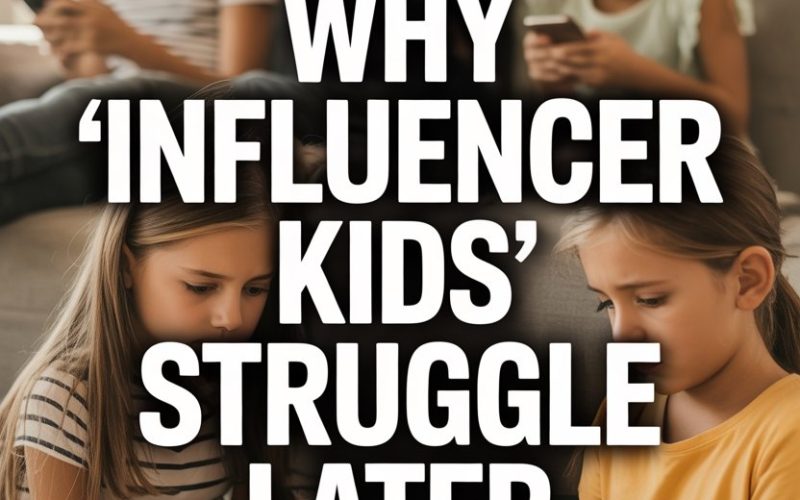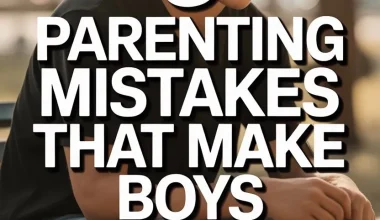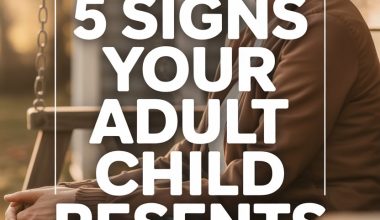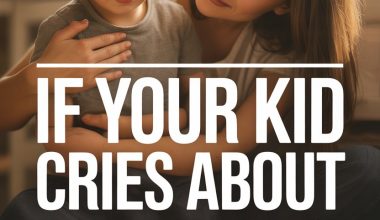If your child has ever asked for a ring light as a birthday present, or begged you to post that third take of their latest “unboxing,” you might be raising an influencer-in-training.
It seems almost every schoolyard these days has its own pint-sized superstar discussing brand collabs over lunch. But what happens when the ring lights dim and the likes slow to a trickle?
Spoiler: it’s not always pretty.
Let’s take off the filters and talk about why childhood fame online can leave kids scrambling later—emotionally, socially, and even financially.
Growing Up on Camera Isn’t Like Growing Up
Imagine trying to discover who you are, all while an audience weighs in on every haircut, hobby, and misstep. That’s the reality for many influencer kids.
The constant feedback loop can make children hyper-aware of what others think—and less attuned to their own feelings.
Psychologists warn that kids raised in the glare of social media can develop “external validation dependency.” Their sense of self-worth becomes tethered to likes, shares, and comments.
They may struggle to build resilience and self-confidence, because applause (not inner satisfaction) has always been the reward.
And let’s not forget the editing. When your childhood is curated for maximum engagement, it’s tough to accept the awkward, messy bits that make us human.
Privacy? What Privacy?
Remember the days when the biggest threat to your privacy was your mum sharing your embarrassing baby photos at your 18th birthday?
Now, influencer kids might have their toddler tantrums, medical updates, and even personal milestones permanently preserved online.
Digital footprints last longer than a school holiday. Once personal moments are shared, they can pop up years down the track. Old videos can become fodder for teasing or even bullying at school, as revealed in a 2022 survey by Childnet.
The internet never forgets, and that can be heavy for a teenager trying to move past their “potty training tips” phase.
The Strain on Family Dynamics
When a child’s online presence becomes the family business, things can get complicated. Who’s in charge: the parent, the manager, or the brand? Often, it’s a heady cocktail of all three.
Communication between parents and kids can start to feel transactional. What’s meant to be a fun day out at the park turns into a content shoot.
A family dinner? An opportunity for a mukbang. Some parents admit that schedules, family time, and even discipline take a back seat to the demands of sponsorships and followers.
Sibling relationships can feel the strain, too. Research from the University of Michigan highlights how brothers and sisters may feel left out, jealous, or pressured to join the limelight.
Education Can Take a Hit
Scrolling through Instagram during maths class is one thing; skipping school to meet brand deadlines is another. Influencer work can eat into time meant for studying, play, and, dare I say, boredom—the birthplace of creativity.
Some young influencers swap classrooms for tutors or even end up with patchy education records. A lack of routine and peer interaction can mean social skills take a hit, too.
As one child psychologist put it in an interview with The Guardian, “They miss out on the everyday learning that comes from sharing a playground, handling conflicts, and just being a kid.”
Financial Pitfalls and Pressure
The promise of early riches can be intoxicating, but all that glitters isn’t gold-plated. Few influencer kids end up with robust savings; money is often spent at the same dizzying pace it’s earned.
Laws protecting child performers, like California’s famous Coogan Law, rarely cover kids making bank on YouTube or TikTok.
Unless parents have the foresight (and honesty) to set aside earnings, many teens find themselves with little to show for years of work.
The New York Times reported families arguing over money, with some parents dipping into their children’s earnings for family expenses—or their own splurges.
There’s also the pressure to keep up. Kids who’ve grown used to a steady income may panic when brand deals slow down or the algorithm changes. Financial literacy rarely keeps pace with online fame.
The Identity Crisis
At some point, the influencer gravy train slows. Maybe the child gets bored. Maybe so do the followers. The jolt can be a doozy.
Many young ex-influencers struggle to figure out who they are when the camera switches off. If your childhood was spent performing, how do you even start to answer the classic “What do you want to be when you grow up?”
It’s a bit like being typecast before you’ve even left school.
A study published in Computers in Human Behavior found that children who tied their sense of self to social media status reported higher levels of anxiety and confusion about future goals.
Public Scrutiny Isn’t Just for Celebrities
We’ve all said and done things as kids that we’d rather forget. For influencer kids, the audience is always watching—and sometimes, judging. Cancel culture doesn’t check your age.
One small misstep can lead to online shaming or even pile-ons from strangers. Mistakes, awkward phases, or unpopular opinions can haunt them for years.
According to Common Sense Media, public scrutiny can contribute to anxiety, depression, and a sense of isolation that’s tough to shake.
Friendships Get Complicated
Friendships during childhood and adolescence are already tricky. Now, add fans, followers, and brand partnerships, and it’s a social minefield.
Some influencer kids find themselves surrounded by people who are more interested in clout than genuine connection. Others struggle to trust new friends at all.
Jealousy, social climbing, and public drama can become par for the course.
A 2019 report from Pew Research Center revealed that young people with public profiles are more likely to report feeling left out or targeted by peers online. Not the foundation you want for healthy, lasting friendships.
The Law Hasn’t Quite Caught Up
Child labor laws in most places were written when the biggest gig going was a paper round or a stint in a TV advert. Kidfluencers and their parents operate in a bit of a legal Wild West.
Recent efforts, such as France’s Digital Labor Law, aim to ensure that children featured in monetized content receive a portion of the earnings and protection around working hours.
But progress elsewhere is slow, leaving most kids unprotected.
Until laws catch up, influencer kids rely on their parents to safeguard their interests—sometimes with mixed results.
What Can Parents Do Tonight?
This all sounds rather doom and gloom, but don’t burn the family vlogging camera just yet. Here are practical steps to help your mini content creator thrive without the pitfalls:
- Draw Boundaries: Not every moment needs to be content. Keep some family time sacred (and off the grid).
- Let Kids Opt Out: Give your child an honest say in what gets shared. Today’s giggle might be tomorrow’s cringe.
- Split the Earnings: If your child brings in money, open an account in their name. And don’t forget to teach them about spending, saving, and giving.
- Prioritise School and Play: No brand deal is worth missing out on mates or missing sleep before a spelling test.
- Model Healthy Digital Habits: Show that life is more than likes by putting down devices and being present.
- Talk About Feelings: Be open about the ups and downs of online life. Encourage your child to develop interests and friendships that exist outside the digital world.
- Stay Involved: Know what your child is posting and who they’re interacting with. Not in a “helicopter parent” way—just enough to keep things safe.
Raising Kids in the Spotlight
Raising a child in front of an audience comes with unique perks and plenty of pitfalls. Fame might arrive overnight, but the after-effects can last well into adulthood.
By keeping perspective, setting boundaries, and putting your child’s wellbeing above the next sponsored unboxing, you’ll help them enjoy the best of both worlds: the confidence to shine online, and the resilience to thrive offline—filters not required.




